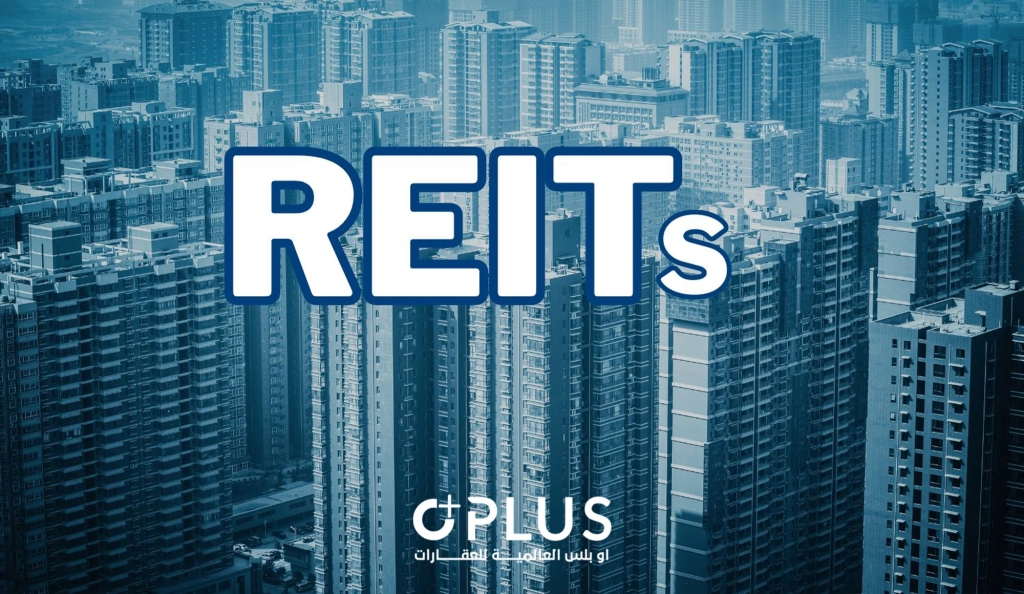With the implementation of the new UAE corporate tax on REITs starting January 1, 2025, investors must prepare for significant changes that could impact their real estate returns. Whether you’re a seasoned investor or exploring new opportunities in the UAE, understanding the new tax structure will help you make better decisions and remain compliant.
In this article, Oplus Realty explores everything you need to know about these tax reforms—from key definitions to investor obligations—along with why the UAE remains an attractive destination for real estate investment.
What’s Changing in UAE Corporate Tax for Real Estate?
Starting from January 2025, the UAE Federal Tax Authority (FTA) will implement new corporate tax regulations, specifically targeting income from Real Estate Investment Trusts (REITs).
Here are the major updates explained in simple terms:
1. Taxable Income from REITs
If you’re an investor in a qualifying REIT that is exempt from corporate tax, you will still be required to pay corporate tax on 80% of the income generated from immovable property by that REIT. The remaining 20% will not be taxed.
This means that even if the REIT itself is exempt, individual or institutional investors will face tax exposure on most of their earnings.
2. Exemption Through Dividend Distribution
There’s a tax benefit for investors if the REIT distributes dividends within nine months after the financial year ends. If you sell your REIT units before receiving any dividends, you’re not liable for tax on that income.
This incentivizes REITs to pay timely dividends and gives investors flexibility in managing their tax obligations.
3. Who Is Affected?
The new tax clarification applies to:
- UAE-based investors and non-residents
- Corporate entities (not individual taxpayers)
- Investors in qualifying REITs that meet specific regulatory and operational conditions
Why This Tax Reform Matters for Real Estate Investors
While new tax laws can be intimidating, this move actually represents a positive step toward transparency, predictability, and market maturity in the UAE.
Let’s explore how these changes can benefit your investment strategy:
✔️ Clear Tax Framework
You now have a defined structure to plan your investment around. Instead of vague obligations, investors can accurately assess how much tax they may owe.
✔️ Increased Transparency for Foreign Investors
For international buyers, a well-documented tax system means fewer surprises. Investors from countries with established tax frameworks will feel more comfortable entering the UAE market.
✔️ Better Decision-Making
Understanding your net return is easier. Whether you aim for long-term rental income or short-term capital gains, these new guidelines allow for better forecasting and planning.
Key Tax Details Every REIT Investor Should Know
According to the FTA’s clarification, here are the core guidelines that all investors in UAE REITs must understand:
🏢 Profit Distributions
Income retained by the REIT is taxable unless dividends are distributed within the 9-month window.
💼 Expense Deductions
Investors may deduct allowable expenses related to their real estate investment. This could include management fees, maintenance costs, or financing charges.
🔄 Taxable Events
Any transfer, sale, or disposal of your investment shares may trigger a tax event, especially if it results in capital gains.
🧾 Fund Obligations
The REIT must provide timely financial statements to all investors, enabling them to file corporate tax returns accurately.
🌍 Non-Resident Support
Foreign investors can appoint a tax agent in the UAE to handle compliance, submissions, and representation before the FTA.
Why UAE Real Estate Remains a Top Investment Choice
Despite this shift toward taxation, the UAE real estate market—particularly in Dubai and Abu Dhabi—remains one of the most profitable and investor-friendly globally.
Here’s why you should still consider investing in this vibrant market:
🏘️ High Rental Yields
Rental returns in Dubai and Abu Dhabi range between 5% to 8%, significantly outpacing many international cities such as London or New York.
🚫 No Personal Income Tax
Even with the corporate tax on REITs, personal income remains tax-free in the UAE. This is especially beneficial for individual investors and expatriates.
🏗️ Booming Property Market
The demand for both residential and commercial properties continues to grow, driven by population growth, global talent migration, and business-friendly policies.
🛡️ Regulated and Transparent
With clearer policies and the introduction of corporate tax governance, the UAE is moving closer to OECD standards, ensuring long-term market stability and global investor trust.
Tips for Investors Ahead of 2025
As the new tax rules near implementation, investors should begin preparing now. Here are a few strategic steps recommended by Oplus Realty:
✅ Review Your REIT Investments
Examine your current real estate investment trusts and ensure they qualify under the new FTA definitions to avoid surprises.
✅ Plan for Distributions
Encourage your REITs to distribute profits within the 9-month window to avoid tax liabilities on retained earnings.
✅ Appoint a Tax Advisor
Especially for non-residents, having a licensed tax advisor or agent in the UAE will simplify your filings and protect you from penalties.
✅ Consider Direct Property Investment
In some cases, investing directly in residential or commercial properties might offer higher control and tax efficiency compared to REITs.
REIT-Friendly Cities in the UAE
Here’s where the action is if you’re looking to enter the UAE REIT market or expand your portfolio:
🏙️ Dubai
- High demand for Grade A office and luxury residential units
- International business hub with growing population
- Strong legal infrastructure and real estate laws
🏡 Abu Dhabi
- Government-backed mega-projects like Saadiyat Island
- Attractive long-term investment opportunities
- Increasing popularity of eco-friendly developments
🌆 Sharjah
- Emerging as a budget-friendly alternative
- Strong demand for mid-income housing and commercial spaces
Final Thoughts: Should You Still Invest?
The short answer is: Yes.
While the UAE’s corporate tax on REITs introduces a new layer of responsibility, it does not diminish the value or potential of investing in the Emirates. In fact, the move toward transparency, international alignment, and structured compliance could make the UAE real estate market even more attractive to global investors.
📞 Ready to Invest in UAE Real Estate?
At Oplus Realty, we specialize in helping investors navigate the ever-evolving real estate landscape in the UAE. Whether you’re interested in REITs, direct property investments, or commercial portfolios, our experts can guide you through legal, tax, and market considerations.
👉 Contact Oplus Realty today to start building a future-ready investment portfolio in Dubai, Abu Dhabi, or anywhere across the UAE.

